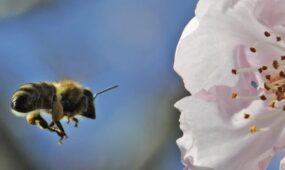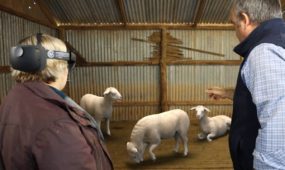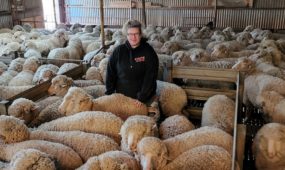New biosecurity centre being established to stop fruit flies
Primary Industries
UPGRADED bio-security measures to combat fruit fly will be introduced in Australia, bringing added confidence to international trade markets.

Sign up to receive notifications about new stories in this category.
Thank you for subscribing to story notifications.
South Australia is the only mainland state in Australia that is free from fruit flies – a critical component of the horticultural industries’ successful and expanding international export market.
A new national Sterile Insect Technology facility in Port Augusta, located in the north of South Australia, will produce billions of sterile male fruit flies – at the rate of 50 million a week – to help prevent the threat of fruit fly invading the state.
The new measures will help secure producers’ access to important citrus and almond export markets including the United States, New Zealand and Japan, worth more than $800 million this year.
The Sterile Insect Technique (SIT) introduces sterile flies into the environment that then mate with the wild population, ensuring offspring are not produced.
Macquarie University Associate Professor Phil Taylor said the fly, know as Qfly because they come from Queensland, presents the most difficult and costly biosecurity challenge to market access for most Australian fruit producers.
“Fruit flies, especially the Queensland fruity fly, present a truly monumental challenge to horticultural production in Australia,’’ he said.
“For generations, Australia has relied on synthetic insecticides to protect crops, but these are now banned for many uses. Environmentally benign alternatives are needed urgently – this is our goal.’’
“The impetus behind this initiative is to secure and improve trade access both internationally and nationally for South Australia.
“It will increase the confidence of overseas buyers in the Australian product and make Australia a more reliable supplier.
“Uncertainty or variation of quality of produce would obviously be a concern for our trading partners.’’
South Australia’s Agriculture Minister Leon Bignell said the $3.8 million centre would produce up to 50 million sterile male Qflies each week.
“The State Government has invested $3 million and Horticulture Innovation Australia Ltd (HIA) has contributed $800,000 in this project and construction is expected to take 10 months,” Mr Bignell said.
“While fruit fly is a major problem with horticultural crops in Australia’s other mainland states, South Australia remains fruit fly free, but we are still at risk of outbreak.
“Producing male-only sterile Qflies has never been done before on this scale and this facility will have an enormous impact on the way in which we deal with outbreaks.
“Fruit fly management protects the commercial production of fruit and vegetables, including wine grapes and almonds, with an estimated farm-gate value of $851 million.
South Australia is also the only mainland state which has a moratorium on growing GM food crops and is one of the few places in the world free of the vine-destroying pest phylloxera.
“Because of these attributes, South Australian products stand out in the competitive global market, which is increasingly seeking clean and safe food and wine,” Mr Bignell said.
The research partner consortium, SITplus, intends to invest about $50 million during the next five years to support the national fruit fly management program.
The consortium is a research group with experts from Macquarie University, Primary Industries and Regions SA’s Biosecurity SA and South Australian Research and Development Institute divisions, HIA, the CSIRO Health and Biosecurity Flagship, Plant & Food Research Australia, and the NSW Department of Primary Industries.
Jump to next article



